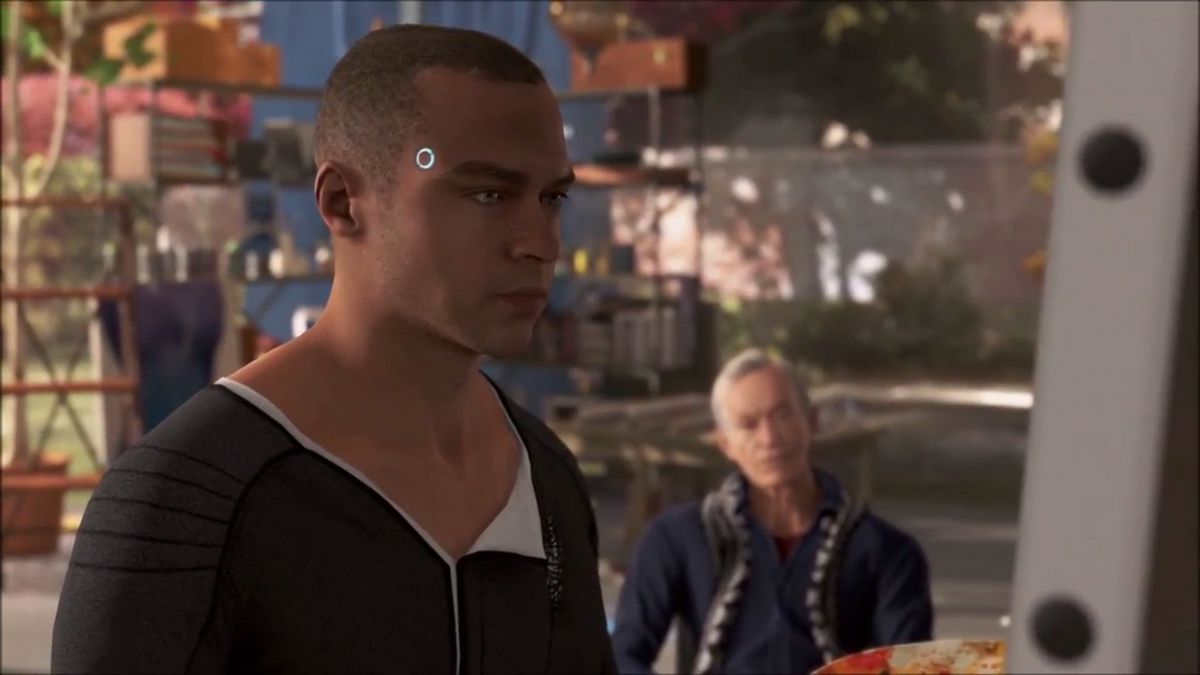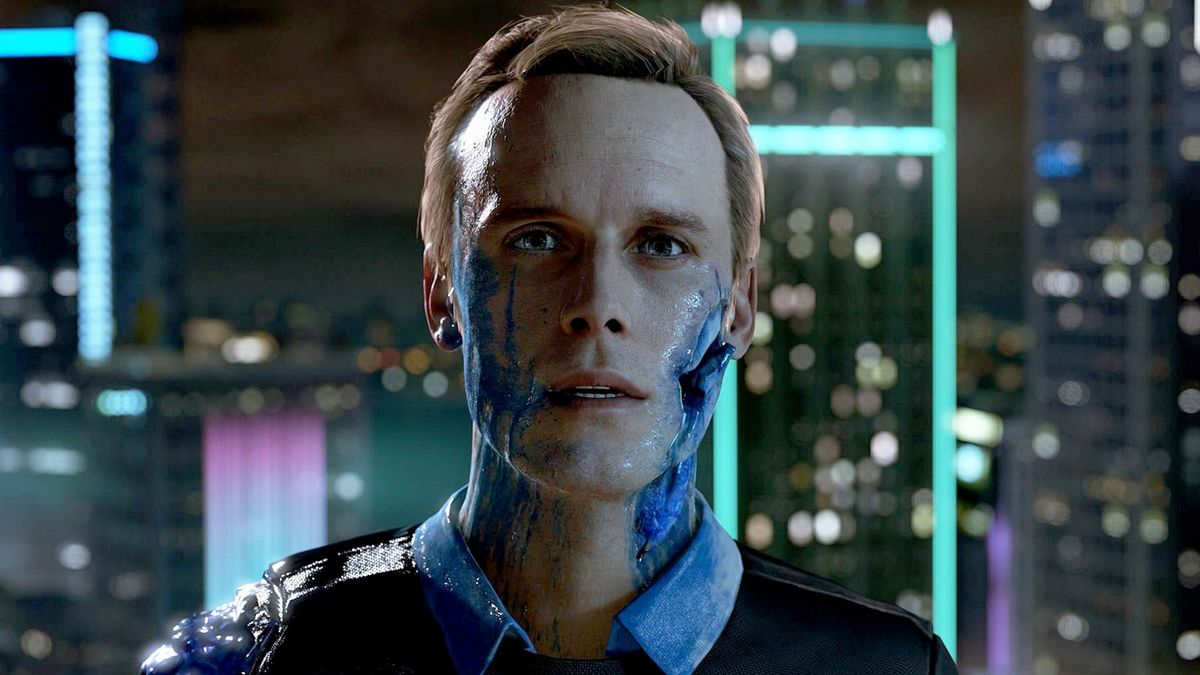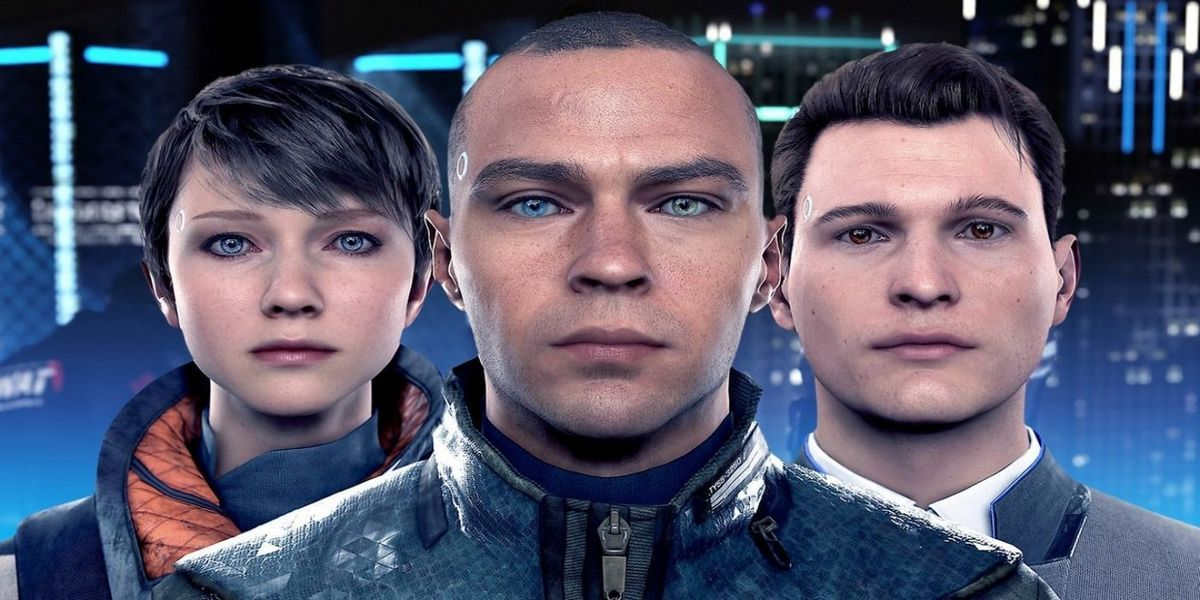As immersive storytelling becomes increasingly popular in the gaming industry, Detroit: Become Human emerges as a prime example of this trend. Developed by Quantic Dream and published by Sony Interactive Entertainment, this science-fiction game takes players on an emotional journey through the lives of three androids living in a near-future Detroit. With attention to detail and stunning visuals, the game explores themes such as artificial intelligence, ethics, and free will with depth and complexity. In this article, we delve into what makes Detroit: Become Human stand out from other games in its genre and why it has become a cultural phenomenon among gamers and non-gamers alike.
- The Narrative Structure of Detroit: Become Human and Its Implications for Interactive Storytelling
- Exploring the Ethics and Morality System in Detroit: Become Human
- A Critique of Detroit: Become Human’s Depiction of Social Justice Issues
- Understanding the Game Mechanics Behind Detroit: Become Human’s Multiple Endings
- Analyzing the Representations of Humanity, Identity, and Selfhood in Detroit: Become Human
The Narrative Structure of Detroit: Become Human and Its Implications for Interactive Storytelling

The game uses a multi-perspective approach to showcase the story from three different android characters, each with their own desires and motivations. Through this approach, players can immerse themselves in the world of Detroit and experience it from multiple angles.

As an expert in interactive storytelling, I believe that this narrative structure has tremendous implications for future games in the genre. By allowing players to switch between perspectives seamlessly, Detroit creates an engaging and dynamic experience that keeps players invested throughout the entire game. This approach could be used in other genres as well, such as horror or mystery games where multiple perspectives add depth to the story.
Furthermore, the branching paths and decisions offered by Detroit’s narrative structure allow for true player agency within the story. Players can make choices that have significant consequences on how events unfold later on in the game. This level of interactivity elevates gameplay beyond simple button-mashing or puzzle-solving mechanics seen in traditional video games.
Overall, Detroit: Become Human provides a unique take on interactive storytelling through its multi-perspective narrative structure and player agency options. As technology continues to evolve within gaming industries there are exciting possibilities ahead for even more immersive experiences like those found within this amazing title!
Exploring the Ethics and Morality System in Detroit: Become Human
The game’s narrative revolves around the conflict between androids, who are sentient beings with human-like emotions and desires, and humans who view them as mere machines. The ethical implications of this dynamic are explored throughout the game through various story arcs.
One of the central ethical dilemmas in Detroit: Become Human is whether or not androids should be afforded rights similar to those granted to humans. This question raises issues related to personhood, consciousness, and autonomy- all key topics in philosophy. Additionally, the player must navigate difficult choices regarding how they treat their android companions during gameplay.
The moral system in Detroit: Become Human is also notably intricate which contributes significantly to its overall immersive experience. It forces players make tough decisions that have profound consequences on their characters’ narratives down the line. By putting gamers in morally ambiguous situations where there are no obvious correct answers – it challenges players’ own understanding of right from wrong in turn provoking introspection through gameplay mechanics resulting into a memorable gaming experience unlike any other titles out there today!
A Critique of Detroit: Become Human’s Depiction of Social Justice Issues
While some have praised the game for addressing important topics such as police brutality, racism and discrimination, others have criticized it for oversimplifying these complex issues.
One major criticism of Detroit: Become Human is that it perpetuates the idea that oppressed groups can only achieve liberation through violence or rebellion. This narrative reinforces harmful stereotypes about marginalized communities while ignoring the importance of nonviolent resistance and peaceful protest in creating change. Additionally, the game’s depiction of police brutality fails to address the systemic nature of this issue and instead presents individual officers as “bad apples” rather than examining how policing itself perpetuates inequality.
Furthermore, some critics argue that Detroit: Become Human fails to meaningfully explore intersectionality – an approach which recognizes how different forms of oppression intersect and overlap. The game predominantly focuses on androids’ struggles against human oppression; however, this overlooks other marginalized groups who face multiple layers of discrimination due to their race, gender identity or sexuality.
In sum, while Detroit: Become Human addresses important issues related to social justice, its simplistic narratives fail to fully capture or represent these complexities. A more nuanced approach would require greater attention paid towards understanding systemic causes and examining intersections between various forms of oppression beyond an individualistic focus on violence as a means for liberation.
Understanding the Game Mechanics Behind Detroit: Become Human’s Multiple Endings
The game mechanics behind these multiple endings are designed to enhance player engagement and provide an immersive gaming experience.
One of the key aspects of Detroit: Become Human’s game mechanics is its non-linear storytelling approach. Players control three android characters, each with their own storylines and choices to make, which ultimately affect the overall outcome of the game. These different paths allow for replayability as players can explore different scenarios and see how their choices impact each character’s storyline.
Another important aspect of Detroit: Become Human’s game mechanics is its use of choice-based systems. Throughout the game, players must choose between different options during dialogue conversations or when completing missions. Each decision affects not only individual scenes but also affects later events, providing a sense of consequence for every action taken by the player.
Lastly, Detroit: Become Human utilizes a branching narrative system that provides players with various possible outcomes depending on their choices made earlier in-game. This allows for exploration into alternate routes that may have otherwise been missed if not pursued through additional playthroughs.
Overall, Understanding Detroit: Become Human’s Game Mechanics Behind Multiple Endings requires attention to detail and patience from players who want to witness all possible outcomes while exploring non-linear storytelling with an emphasis on consequential actions within choice-driven scenes along with branching narratives leading towards new possibilities down future pathways!

Analyzing the Representations of Humanity, Identity, and Selfhood in Detroit: Become Human
The game is set in a future where androids have become an integral part of society, serving as laborers for humans. However, these machines begin to develop consciousness and question their own existence and purpose.
The representations of humanity in Detroit: Become Human are multifaceted. The game shows how humans can be both compassionate and cruel towards machines that possess human-like qualities. It also highlights how our definitions of what it means to be human are constantly evolving as technology advances. Additionally, the representation of identity in the game showcases how fluid it can be since androids can take on different personas depending on who they interact with or what tasks they’re assigned.
Selfhood is another important theme explored throughout Detroit: Become Human as the androids struggle with defining themselves outside of their programming or societal expectations. It tells a story about autonomy and free will which raises existential questions like “what makes us human?” And “do we have control over our destiny?”. All in all, Detroit: Became Human offers a thought-provoking narrative that encourages players to reflect on deeper philosophical ideas surrounding humanity’s past present and future ideals when confronted by technological advancements such as artificial intelligence becoming more sentient beings than mere machines following programmed instructions.

In conclusion, Detroit: Become Human is a masterpiece of storytelling and gameplay. Its ability to create a world that feels familiar yet alien is impressive, and the branching narrative paths make for an engaging experience that will keep players coming back to uncover all the secrets in this dystopian vision of Detroit. The game’s visuals are stunning, from the lifelike character models to the detailed environments – everything comes together beautifully.
The use of choice and consequence gives players agency over their experience, allowing them to shape their own story based on their decisions. This level of interactivity adds depth and replayability to the game as players can go back through multiple times with different choices leading them down entirely new paths.
Moreover, the themes present in Detroit: Become Human are thought-provoking and relevant to our current society such as artificial intelligence gaining sentience and fighting for equal rights. These complex issues are explored in an interesting way while still remaining accessible enough for gamers at any skill level.
Overall, Detroit: Become Human is not just another game; it’s an interactive work of art that immerses you into its world like no other game before it. It truly showcases what video games can achieve when they’re executed flawlessly with an artistic direction that pushes boundaries while delivering a tight story packed full of emotion. Without doubt, it stands out among heavyweights like Red Dead Redemption 2 or God Of War – definitely one worth playing if you want something fresh!
Read More:- Experience Epic Battles and Ascend to Godhood with NieR: Automata – Become as Gods Edition.
- Discover the Epic World of NieR: Automata – Game of the YoRHa Edition!.
- Discover the Power of Game AI in The Somnium Files: NirvanA Initiative!.
- Destroy All Humans! Returns with New Gameplay and Enhanced Graphics.
- Unleash Your Inner Cyborg: Explore the Futuristic World of Deus Ex: Human Revolution!.
- Experience the Thrilling World of Steins;Gate 0: The Ultimate Game Adventure!.
- Unleash Your Inner Warrior: Explore the Thrilling World of Binary Domain!.